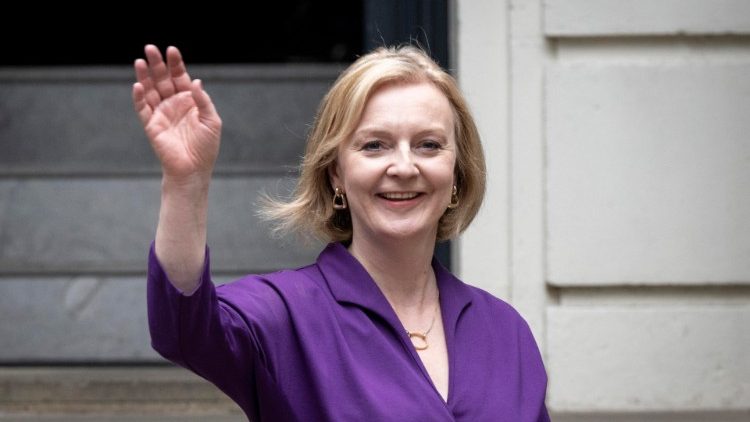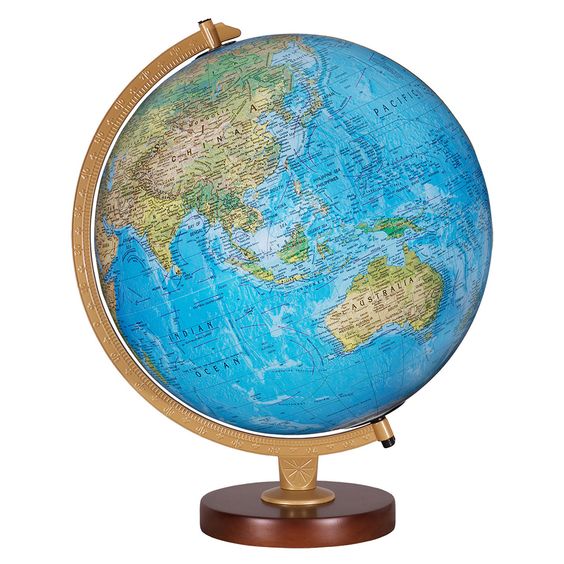
Liz Truss is attempting to solve Britain’s mounting problems through a narrow conservative, anti-European window.
By Tom Arms
Britain’s new Conservative Prime Minister Liz Truss is doomed to failure because she has failed to correctly diagnose the cause of her country’s problems.
Any doctor will tell you that before you can successfully treat a patient you must first know what you are treating. In fact, the treatment is often the easiest part of the medical business.
The same rule applies to most aspects of life, especially politics. Before you can correct social and economic ills with new policies, laws or decrees you must correctly identify the cause of the problem. If you fail to do so the problem will fester and grow in much the same way as an untreated cancer.
Problems in political diagnosis often arise when the politician insists on examining the patient through a narrow ideological lens. Medieval Europe, for example, was a socially stagnant period because all social issues were addressed through the pages of the Bible. The Soviet Union collapsed because the ruling Politburo decreed that all of society had to be organized through the prism of Marxist-Leninism.
Liz Truss is attempting to solve Britain’s mounting problems through a narrow conservative, anti-European window.
Part of the reason for her approach is that it is the conservative government who is responsible for the very problems she is attempting to resolve. Let’s start with the issue of foreign investment in the UK which is essential to economic growth and which Ms. Truss claims she will attract with the traditional conservative economic tactic of lower corporate taxes.
Pre-Brexit, Britain was a magnet for foreign investment for several reasons: it was English-speaking. It was politically stable. Business relations were conducted according to internationally-respected English commercial law which was protected by an independent judiciary. There was a world beating arts sector and excellent educational and research establishments. BUT, most of all, the United Kingdom was a bridgehead into the world’s largest trading bloc—the European Union.
Between 2011 and 2016 foreign direct investment in the UK grew at a staggering annual rate of 8.3 percent according to Investment Monitor. It reached its peak at the time of the Brexit vote. In 2017-2018 it fell by 9.3 percent. In 2018-2019 it was down by another 16.3 percent. It rose slightly—3.8 percent—the following year, but this has been mainly credited to market adjustments.
Lowering corporate taxes is unlikely to solve the problem. From 2016 British corporation has been 19 percent, one of the lowest in Europe and two percent lower than federal US corporation tax. Foreign companies did not stop investing in Britain because of its tax structure. They stopped because it withdrew from the EU.
But the new prime minister emphatically denies that Brexit has in anyway contributed to the country’s decline since 2016. To do so, would be to admit that the conservatives were wrong to take Britain out of the EU. So she doubles down. Support for a hardline Brexit has become a defining characteristic of the Conservative Party. Neither does Ms. Truss make any attempt to improve relations with Europe. “The Jury is out,” on whether French President Emmanuel Macron is a “friend or foe”, she told a questioner recently.
A big part of the problem is that Liz Truss was not voted into office by the British people. She was elected by .003 percent of the electorate and they were all card-carrying members of the conservative party.
The most pressing battleground the EU is the Northern Ireland Protocol which reaches another deadline this coming week. The Conservative government of Boris Johnson negotiated a withdrawal agreement which placed Northern Ireland in the EU single market and customs union. Before the ink was dry on the treaty papers, Johnson was reneging on the Northern Ireland Protocol. As Foreign Secretary Liz Truss helped organize the charge against “unreasonable and inflexible Brussels.” As Prime Minister she has appointed three hardline Brexiteers to lead negotiations on the Northern Ireland Protocol. This is despite a pointed warning from President Biden that her refusal to compromise on the issue would damage US-UK relations.
A big part of the problem is that Liz Truss was not voted into office by the British people. She was elected by .003 percent of the electorate and they were all card-carrying members of the conservative party. According to the party’s own Bow Group researchers the average party member is a 72-year-old White male. They are also largely anti-immigrant and anti-EU. That is only constituency to which Ms. Truss had to pitch in order to be elected Prime Minister.
The rest of the electorate will have to wait two years for their chance to vote on her policies, by which time Ms. Truss’s misdiagnosis will have wreaked extensive damage on the United Kingdom.
 World Review
World Review
- One of my other hats is leader of the local Cub Scout group. As such, an important part of my job is explaining the Cub Scout promise to incoming cubs. The second line was, until this week, “to uphold scout values and honor the Queen.” Now it will be “honor the King.” But regardless, of the gender of Britain’s monarch, my explanation of the importance of that line will be the same. It is that the monarch is the physical repository of a thousand years of British history, tradition and laws. Many of these laws and traditions have spread all around the world and, by and large, have influenced it for the better. I tell my cubs that they are not pledging an allegiance to a person so much as to the unwritten constitution which the monarch represents. I believe this to be true. I wouldn’t tell my cubs so if I thought otherwise. BUT Queen Elizabeth II was different. She did more than act as a constitutional repository. She did so in a way that demonstrated a selflessness and devotion to duty which set an example for every person in the United Kingdom and for hundreds of millions in the Commonwealth and beyond. She was working up until two days before her death. Queen Elizabeth II was loved and respected around the globe because she loved. Her reign was a link between Euro-centric imperial world with only 50 members in the United Nations to one with 193. Her first Prime Minister was a hero of the Boer War. Her last was seven years old when the Falklands Task Force set sail. Viewed from the rose-tinted perspective of 70 years of hindsight, the world seemed a secure and certain place when Elizabeth Windsor was crowned Queen. But it was only seven years after the end of World War Two. Rationing was still in force. Britain was staggering under the burden of a huge war debt and an empire it could ill afford. Today it is recovering from the cost of a pandemic and facing mounting bills brought on by the withdrawal from the EU and a war in Ukraine. Since the time of Victoria the role of the British monarch has been to stand aloof from politics. To play the role of the rock of constancy in a sea of constantly shifting tides. Queen Elizabeth II played her part magnificently and has the established the template for King Charles III.
- Volodomyr Zelensky and his generals have fooled me. More importantly, they have fooled Vladimir Putin and his generals. Everyone knew that the Ukrainians were planning a counter-offensive, if only to prove to their Western backers that they were worth the military aid and economic sacrifices. The riverside city of Kherson in Southeast Ukraine was expected to the main target of the counter-offensive. Ukrainian forces controlled or destroyed the main bridges across the Dnieper River. Putin rushed troops to the city and built up his forces in Crimea to the immediate south. But Zelensky’s men decided instead to focus their counter-offensive in the northeastern sector of Ukraine and the city of Kharkiv. In a single day the Ukrainians managed to break through Russian lines and regain several towns and villages in the Kharkiv region and 400 square kilometers of territory. The Russians have grudgingly admitted that the Ukrainian success. While the Ukrainians were advancing US Secretary of State Antony Blinken was visiting Kyiv to announce another $2 billion in US aid. So far Washington has contributed $15.2 billion to Ukraine. Meanwhile, the British Ministry of Defence has reported that 15,000 Russian soldiers have died in Putin’s “special military operation.” That is the same as the official Moscow death toll for the Soviet Union’s ten-year war in Afghanistan (although the recognized unofficial figure is nearer 50,000).
- The Ukraine-Russia grain deal brokered by the UN and Turkey is in trouble. This week Vladimir Putin announced at the Eastern Economic Forum in Vladivostok that he wants to renegotiate the terms because the Europeans were acting like “colonial powers” and grabbing the bulk of the grain allowed to leave Ukrainian ports, leaving only three percent of the grain for developing world markets. The claim is a transparent attempt by the Russian leader to distort non-existent statistics to win developing countries support for his war and diplomatically isolate the US and Europe who are backing Ukraine. According to the UN, Putin is, not to put too fine a point on it, lying. Thirty percent of the grain is going direct to developing countries. Twenty percent is going to Turkey, but a large proportion of the Turkish grain is being trans-shipped to Middle Eastern countries such as Lebanon and Syria, albeit with a middleman’s fee to Turkey. Spain, which is receiving 15 percent of the grain, is performing a similar role in West Africa. Other big importers are China and Italy at seven percent each. Most of the rest is going to developing world countries. But there is still not enough grain leaving Ukraine and Russia. The UN estimates that 49 million people could be pushed into famine this year because of the Ukraine War. There will be more if Putin is allowed to throw another spanner into the works.
- In just about a fortnight, Italians will troop to the polls to elect a new government. All the bookies are betting on a right-wing coalition led by the 45-year-old leader of the fast-rising Brothers of Italy, Georgi Meloni. Just four years ago her party polled only four percent of the vote. Now it has 25 percent and Meloni’s coalition with Silvia Berlusconi’s Forza Italia and Matteo Salvini’s anti-immigrant Northern League totals roughly 49 percent of the vote. The opposition Left Alliance can only muster 29 percent. Ms Meloni’s Brothers of Italy has been branded by most pundits as a “post-fascist” party, a label which she has been trying to play down while at the same time appealing to her strongly conservative base. She started off pro-Putin, anti-EU and not so keen on NATO. But since the Russian invasion of Ukraine she has denounced Putin, and declared her support for the alliance and watered down her opposition to the EU. However, the Brothers of Italy still want to renegotiate the terms of their EU loan, express admiration for Hungary’s Viktor Orban and America’s Donald Trump, oppose gay rights and want the Italian navy to order boatloads of immigrants back to Africa.
___________________
 Tom Arms is foreign editor of Britain’s Liberal Democrat Voice, the news website of Britain’s Liberal Democratic Party. He is also author of the recently published book “America Made in Britain.”
Tom Arms is foreign editor of Britain’s Liberal Democrat Voice, the news website of Britain’s Liberal Democratic Party. He is also author of the recently published book “America Made in Britain.”